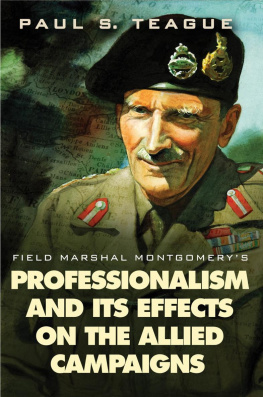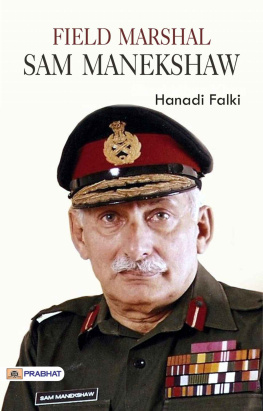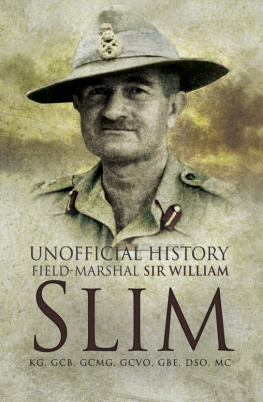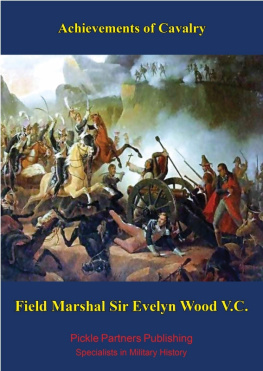William Robertson - From Private to Field-Marshal
Here you can read online William Robertson - From Private to Field-Marshal full text of the book (entire story) in english for free. Download pdf and epub, get meaning, cover and reviews about this ebook. year: 2022, publisher: BarnesNoble, genre: Non-fiction. Description of the work, (preface) as well as reviews are available. Best literature library LitArk.com created for fans of good reading and offers a wide selection of genres:
Romance novel
Science fiction
Adventure
Detective
Science
History
Home and family
Prose
Art
Politics
Computer
Non-fiction
Religion
Business
Children
Humor
Choose a favorite category and find really read worthwhile books. Enjoy immersion in the world of imagination, feel the emotions of the characters or learn something new for yourself, make an fascinating discovery.
- Book:From Private to Field-Marshal
- Author:
- Publisher:BarnesNoble
- Genre:
- Year:2022
- Rating:3 / 5
- Favourites:Add to favourites
- Your mark:
- 60
- 1
- 2
- 3
- 4
- 5
From Private to Field-Marshal: summary, description and annotation
We offer to read an annotation, description, summary or preface (depends on what the author of the book "From Private to Field-Marshal" wrote himself). If you haven't found the necessary information about the book — write in the comments, we will try to find it.
From Private to Field-Marshal — read online for free the complete book (whole text) full work
Below is the text of the book, divided by pages. System saving the place of the last page read, allows you to conveniently read the book "From Private to Field-Marshal" online for free, without having to search again every time where you left off. Put a bookmark, and you can go to the page where you finished reading at any time.
Font size:
Interval:
Bookmark:
WILLIAM ROBERTSON

This 2011 edition published by Barnes & Noble, Inc.
All rights reserved. No part of this publication may be reproduced, stored in a retrieval system, or transmitted, in any form or by any means, electronic, mechanical, photocopying, recording, or otherwise, without prior written permission from the publisher.
Barnes & Noble, Inc.
122 Fifth Avenue
New York, NY 10011
ISBN: 978-1-4114-5461-3
PREFACE
T HE only justification for publishing this book is that it describes the climbing of a soldier from the bottom to the top of the military ladder, and even in this feat there is nothing remarkable beyond the fact that it happens to be the first of its kind in the annals of the British Army.
Energy and determination are usually essential to advancement in any vocation, and are at the disposal of every one possessing a good constitution. Given the exercise of these qualities and the same help from real friends as I enjoyedfriends who had nothing to gain and perhaps something to lose by showing friendshipany man can equal what I have accomplished.
Still, the story here given may not be wholly without interest, especially to those who have their lives in front of them, and in the hope that it will prove to be so I have decided to let it go forth. Doubtless it has many defects, both in substance and style, which would have been less apparent if its preparation had been in more practised hands, and for these imperfections I ask lenient treatment.
In writing the chapters dealing with my service in the ranks and as a Subaltern Officer I have had to depend chiefly upon memory, which has become blurred and unreliable owing to the lapse of time and the crowded events of the last few years. Consequently it has not been possible to make this part of the book as complete as, to my mind, it deserves to be, for the period in question was in some ways the most fascinating and happy of all. For instance, I derived greater satisfaction from being promoted Lance-Corporal in 1878the first rung of the ladderthan I did from being created a Baronet forty years later; and, as Lieutenant, I felt prouder to be in command at the railhead of a Frontier Expeditionary Force in India of less than 10,000 men than, as General, to be Chief of the Imperial General Staff in the greatest conflict the world has ever known, when the number of our troops ran into several millions.
In building up the chapters referring to the Great War, I was embarrassed by having not too little but too much material. The difficulty here was to make a suitable selection, and to include just so much about my share of the war as seemed appropriately to fall within the scope of the book. In particular I tried to avoid enlarging upon old controversies connected with the supreme direction of the war, and which occur to a greater or less extent in all wars. I felt that a discussion of them would merely bore the ordinary reader, who is content to know that the war was in fact won; while it would be of little use to any one unless the points in dispute were thoroughly examined in the light of complete evidence, and this would require a book for itself as well as access to official documents which are not at my disposal. I have therefore made, as a rule, no more reference to these matters than was required to enable me to illustrate the work of the Imperial General Staff, of which I was Chief for about half the period of the warfour other officers filling that post at different times during the remaining halfand to emphasise the achievements, though very inadequately, of the regimental officers and men of the Imperial Forces who won the war for us, and with whom I have had the honour to be associated for nearly forty-four years.
W. R. ROBERTSON,
Field-Marshal.
CHAPTER I
RECRUIT AT ALDERSHOT
Enlistment in 16th LancersThe "Old Soldier" in the 'SeventiesBarrack-room lifeRationsPayKit and equipmentUniformDrillsTreatment of sickBreaking out of barracksSundaysFirst Christmas DayNight guardsMilitary offences and punishmentsGuard-roomArticles of WarMuster paradePunishment drillMusketry courseDismissed drillsDay guardsI allow a deserter to escape and so commit my first "crime"Imprisoned in guard-roomMy second "crime"Promoted Lance-CorporalBackward state of trainingField-daysReasons for defective trainingLord Wolseley, Sir Evelyn Wood, and other rising Generals effect great reformsSuccesses in competitions at skill-at-arms.
I WAS seventeen and three-quarters years old when, having decided to seek my fortune in the army, I took the "Queen's Shilling" from a recruiting sergeant in the city of Worcester on the 13th of November 1877. The minimum age for enlistment was eighteen, but as I was tall for my years the sergeant said that the deficient three months would involve no difficulty, and he promptly wrote me down as eighteen years and two monthsso as to be on the safe sideand that has been the basis of my official age ever since. For some reason that has now escaped my memory I was detained at Worcester for four days, receiving in the meantime two shillings and a halfpenny per diem for board and lodgings. The odd halfpenny strikes one as being a queer item, but it had no doubt been arrived at by Her Majesty's Treasury after careful calculation of the cost actually incurred. The recruiting sergeant, a kindly disposed individual, took possession of the whole sum, giving me in return excellent, if homely, accommodation and food at his own house.
The regiment I selected to join, the 16th (Queen's) Lancers, was stationed in the West Cavalry Barracks, Aldershot, and on arrival there, on a wet and dreary November evening, the first people I met were the "orderly officer" and the regimental sergeant-major, both of whom showed a sympathetic interest in me. I was at once posted as No. 1514 to "G" Troop, the officer saying to me as I went off, "Give your watch to the sergeant-major of your troop, my lad," and, as I wrote home a few days later, I did so, "for it is unsafe to leave it lying about, and there is nowhere you can carry it with safety."
The regiment was commanded at the time by Colonel Whigham, who had originally served in the infantry. The adjutant, Lieutenant "Jimmy" Babington, was a fine horseman, a strict disciplinarian, and universally regarded as an ideal cavalry officer. He was more than that, as is shown by his selection in 1914, when nearly 60 years of age, to command one of the Kitchener Divisions. This he took out to France the following year, and from then onwards was continuously in command of the division or an army corps, in France or in Italy, until the end of the war, a task which proved to be beyond the physical powers of many a younger man in the hard and incessant fighting on the West Front.
"G" Troop was commanded by Captain Henry Graham, one of the most kind-hearted men under whom it has been my lot to serve. His subaltern, Lieutenant "Freddy" Blair, was somewhat of a terror to all shirkers and wrongdoers in the troop, but I have no recollection of having been on his black list; and I am sure that neither of us then thought that forty-one years later I would be Commander-in-Chief of the Eastern Command and he would be my military secretary. But so it turned out.
The life of a recruit in 1877 was a very different matter from what it is now. The system introduced in 187172 by Mr. Cardwellone of the greatest War Ministers the country has ever hadunder which men enlisted for twelve years' regular service, had not yet had time to get into full swing. Regiments were, therefore, still composed mainly of old soldiers who, although very admirable comrades in some respects and with a commendable code of honour of their own, were in many casesnot in alladdicted to rough behaviour, heavy drinking, and hard swearing. They could not well be blamed for this. Year in and year out they went through the same routine, were treated like machinesof an inferior kindand having little prospect of finding decent employment on the expiration of their twenty-one years' engagement, they lived only for the present, the single bright spot in their existence being the receipt of a few shillingsperhaps not more than oneon the weekly pay-day. These rugged veterans exacted full deference from the recruit, who was assigned the worst bed in the room, given the smallest amount of food and the least palatable, had to "lend" them articles of kit which they had lost or sold, "fag" for them in a variety of ways, and, finally, was expected to share with them at the regimental canteen such cash as he might have in the purchase of beer sold at 3d. a quart.
Font size:
Interval:
Bookmark:
Similar books «From Private to Field-Marshal»
Look at similar books to From Private to Field-Marshal. We have selected literature similar in name and meaning in the hope of providing readers with more options to find new, interesting, not yet read works.
Discussion, reviews of the book From Private to Field-Marshal and just readers' own opinions. Leave your comments, write what you think about the work, its meaning or the main characters. Specify what exactly you liked and what you didn't like, and why you think so.







